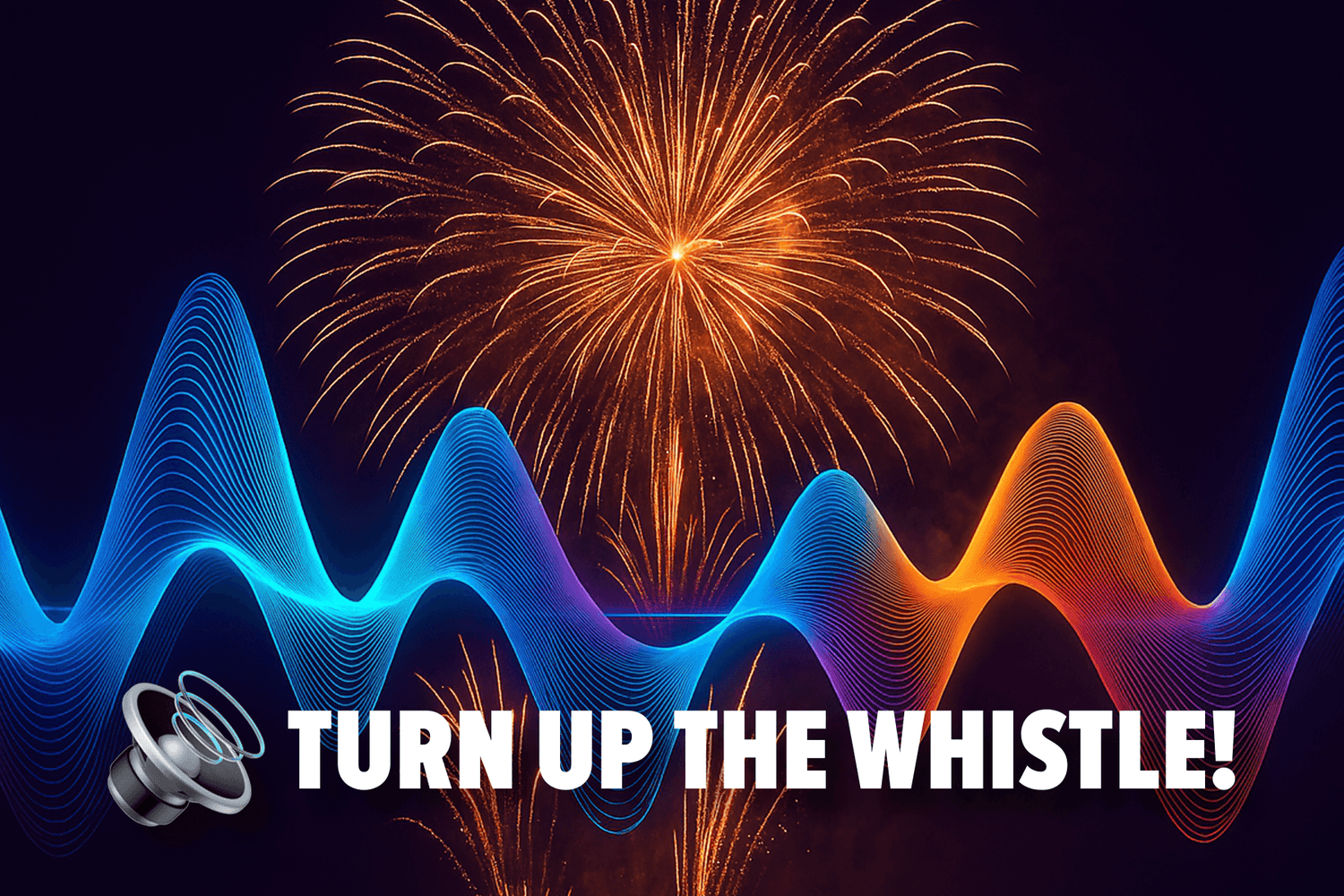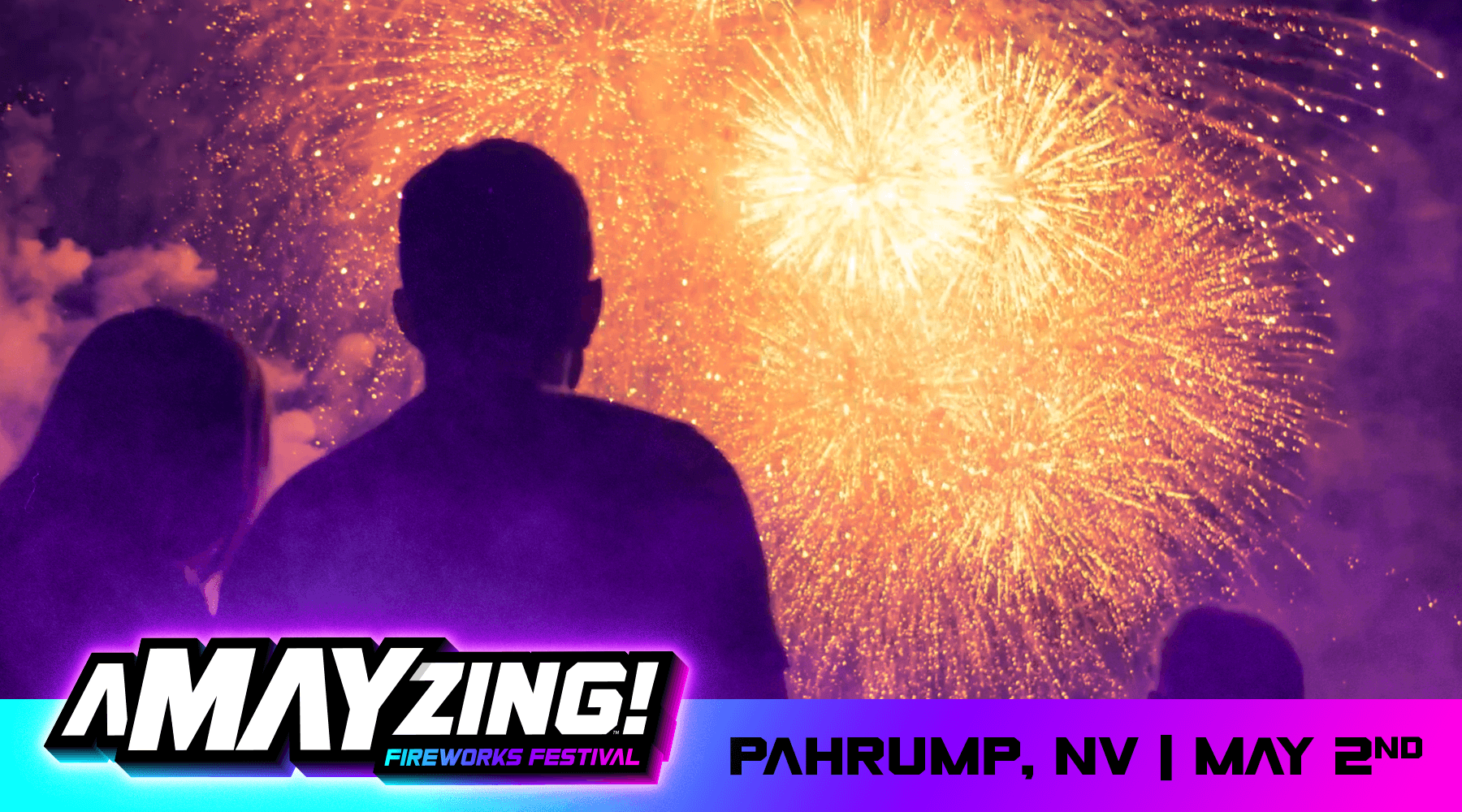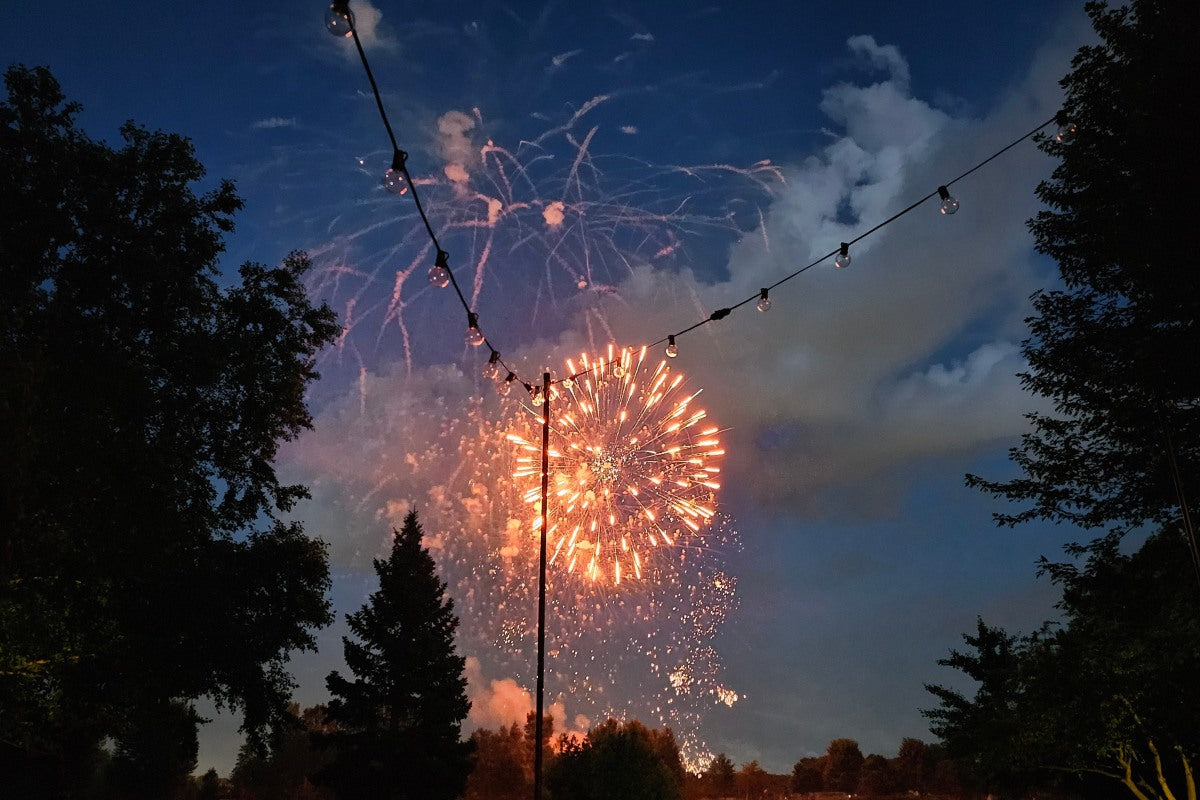If you’ve ever watched an incredible fireworks display and wondered what makes fireworks whistle, you’re definitely not alone!
At Red Apple Fireworks, we’re fireworks experts who love sharing our knowledge, helping DIY enthusiasts, families, and event planners create memorable shows.
From holiday backyard celebrations to professional-grade wedding displays, knowing what creates those exciting whistling effects can make fireworks even more thrilling.
Let’s dive into the exciting details of the chemistry of fireworks and their sounds. Curious to know more? Check out our guide on “is magnesium used in fireworks?”!
What this article covers:
- How Firework Sounds Are Made
- What Causes the Whistle Sound?
- Why Whistling Fireworks Are Harder to Make
- The Purpose of Whistles in Fireworks Displays
- Types of Fireworks That Include Whistle Effects
- Safety Considerations for Whistle Fireworks
How Firework Sounds Are Made
Fireworks aren’t just visual—they’re engineered to be loud, exciting, and full of variety. Every boom, crackle, pop, and whistle is a result of chemistry, physics, and precise construction.
While booms and bangs come from rapid combustion and expanding gases, and crackles result from metal flakes burning at high speed, whistles are in a category of their own.
What Causes the Whistle Sound?
Whistle sounds are produced when rapidly expanding gases are forced through narrow tubes inside the firework.
As the fuel burns, it releases gas that builds up pressure. That gas escapes in pulses, causing vibrations that create the telltale whistling effect.
This unique sound isn’t random—it’s the product of a carefully crafted mix of chemicals and design elements working together in perfect harmony.
The Ingredients Needed for Whistle Mix
To create the whistle effect, fireworks manufacturers use specific whistle mixes. Common ingredients include potassium benzoate or sodium salicylate, mixed with an oxidizer such as potassium perchlorate.
This combination quickly ignites and produces gases rapidly, causing vibrations that produce the high-pitched whistle we all enjoy.
The Process of Creating a Whistle Effect
Creating whistle fireworks involves carefully packing whistle mix into narrow tubes or rockets. When ignited, the chemicals inside burn quickly, forcing gases through a small opening.
This rapid gas flow causes vibration, resulting in that signature whistle you recognize instantly. Precision is key—too large an opening and you'll get no whistle; too small, and it won't burn correctly.
Why Whistling Fireworks Are Harder to Make
Whistling fireworks are more difficult to produce than standard aerial shells or booms. The sound requires a delicate balance of chemistry, pressure, and airflow.
Even slight variations in tube size, whistle mix composition, or burn speed can ruin the effect.
That’s why high-quality whistling fireworks—like the ones we offer at Red Apple Fireworks—are made using precision-engineered components for consistent, clear sound performance.
The Purpose of Whistles in Fireworks Displays
Whistle fireworks aren't only about excitement—they also enhance fireworks shows strategically. Event planners and families love whistles because they add anticipation and excitement.
Whistles can signify the beginning or grand finale of fireworks displays, enhancing holiday celebrations, special events, or festive occasions.
At Red Apple Fireworks, we offer fireworks with whistle effects that enhance any show, creating unforgettable memories for audiences of all ages.
Types of Fireworks That Include Whistle Effects
Whistle effects are commonly found in a variety of firework types. These include rockets, roman candles, aerial repeaters, and even specialty fountains.
Some whistle alone, while others combine whistling with color bursts, crackling, or strobing effects.
Whether you're looking for a quick zip or a drawn-out rising whistle before the burst, Red Apple has a wide selection of whistling fireworks to choose from.
Safety Considerations for Whistle Fireworks
As experts in fireworks safety, we always prioritize proper handling and use. Whistle fireworks, like all pyrotechnics, should be handled responsibly.
Always keep whistle fireworks stored safely, away from open flames, moisture, and heat.
When lighting whistle fireworks, follow instructions carefully, maintain a safe distance, and ensure you're using a stable launching platform.
Families and DIY enthusiasts should always supervise younger users, ensuring safe, enjoyable experiences during your celebrations.

Conclusion
Now you know exactly what makes fireworks whistle! At Red Apple Fireworks, we're passionate about helping you discover the exciting science behind your favorite fireworks effects, from bright colors to captivating whistles.
Whether you're a family celebrating a holiday, an event planner arranging professional displays, or a DIY enthusiast crafting your next memorable celebration, we've got fireworks designed to thrill everyone.
From our missiles fireworks to our novelty fireworks collections, we’ve got everything you need to elevate your next holiday or special event.
Looking for unbeatable deals? Join our Club Red Apple® membership and save up to 25% on your next purchase!
When you become a member, you unlock exclusive perks and benefits that make every firework show even better.
Ready to make your next event unforgettable? Visit Red Apple Fireworks today and let us help you light up the sky!
If you want to learn more, check out these articles below:
-
How Are Metallic Salts Used in Fireworks?
- How Do Fireworks Work
- When Were Fireworks Invented?
- First American Fireworks
- Facts About Fireworks
- Why Do Celebrate with Fireworks?
- Why Were Fireworks Important in Ancient China?
- How Do Fireworks Get Their Color?
- What Element Makes Purple Fireworks?
- What Element Will Give Fireworks Their Yellow Color?
- What Makes Fireworks Blue?
- Which Metal Ion Is Responsible for the Red Firework?
- How Does a Firework Work?
- What Chemicals Are Used in Fireworks?
- What Minerals Are Used to Make Gold Sparks Fireworks?
- What Three Processes Cause Fireworks to Emit Light?











Leave a comment
All comments are moderated before being published.
This site is protected by hCaptcha and the hCaptcha Privacy Policy and Terms of Service apply.